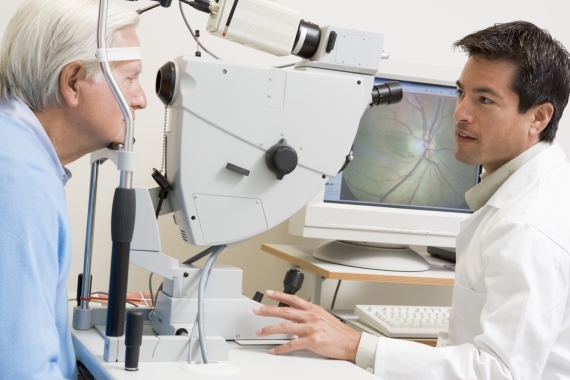What Is the First Sign of Cataracts?
The first sign of cataracts is usually the appearance of cloudy vision. If you think you may have a cataract, the specialists at Elmquist Eye Group can provide you with an accurate diagnosis and help you plan an appropriate course of treatment.

Yasaira Rodriguez, MD is Board Certified by the American Board of Ophthalmology and a fellow of the American Academy of Ophthalmology. She specializes in refractive cataract surgery, upper eyelid surgery, and in-office procedures.
About Cataracts
The lens of your eye is normally transparent. This enables light to pass easily through it to the retina, where images of what you are seeing are processed and sent to your brain via the optic nerve.
The lens is made up mostly of water and protein. As we age, the natural proteins may begin to clump together, making some or all of the lens cloudy. This makes it difficult for the light to travel through the lens, and the images processed by the retina are no longer clear.
Symptoms of cataracts may include blurred or double vision, glare or haloes from lights, poor night vision, and frequent changes in prescription for your eyeglasses or contact lenses. The first evidence of cataracts is usually discovered during a cataract evaluation.
According to the American Academy of Ophthalmology, over 24.5 million Americans aged 40 and older are affected by cataracts. And by the year 2050, it is estimated that 50 million Americans will have them.
About Cataract Surgery
The only way to treat cataracts is with surgery that replaces the clouded lens of the eye with an artificial intraocular lens, or IOL for short. There is little to no discomfort, and vision is usually restored within days.
Although all surgeries have risks, traditional cataract surgery is one of the safest surgeries performed in the U.S. today. Elmquist Eye Group also offers refractive laser-assisted cataract surgery, which is designed to make the procedure even more precise, safe and accurate.
There is no reason to rush into cataract surgery unless your vision is affecting your lifestyle, but there are some reasons you may want to consider doing it sooner than later. Patients who elect to have cataract surgery experience fewer hip fractures and are able to enjoy better driving performance.
If you believe you are experiencing the first signs of cataracts, get in touch with Elmquist Eye Group at (239) 936-2020 to discuss your treatment options.
